Stone House in Anavissos was completed by Whitebox Architects and is located in Athens, Greece.
The concept was creating a residence for a family of four – the parents with two children – and the possibility of having a guest room with relative autonomy -a separate bathroom. The basic demands were: the view of the sea from all four bedrooms, office space on the ground floor for the professional needs of the couple but mainly for the mother who wanted to work and supervise the ground floor where the children would play. Another request for the design was the economy in energy consumption of the house and the possibility of enjoying the outdoor spaces throughout the year for dining, swimming, and games.
The plot is located in Lakka, looking over the gulf of Anavissos. Undergrowth, rocky terrain with a gentle slope to the bay located southeast of the plot, and strong northerly and easterly winds -local thermal effects are the main features of the inhospitable natural environment.
Morphology
The building is L-shaped, thus protecting the space of the central courtyard from the strong local winds while connecting the indoor spaces to the external functions of the residence. The ground floor is divided into two levels following the smooth slope to the sea. On the northwest side, while the indoor facilities are disrupted, the structural elements of the building are released from the main volume. They continue their way until they form a protection from the north wind -with stone walls and the sun- with fixed wooden blinds – space.
This area is the “secret” access of the family directly to the kitchen, the summer dining, and the rest area with shade and coolness. The children’s secret garden with a sculpture hidden behind the stone columns barely leaves the sun rays to penetrate and reveal their secret. Pergolas on the south side of the house protect the inner space from direct sunlight through the corner windows facing the sea. Inside the building is an atrium with a mobile roof that slopes to the North to allow the northern light to enter and contributes to the hot air relief during the summer. It also contributes to the visual and audio communication of the residents on both floors.
The semi-open space between the two children’s bedrooms in contact with the atrium allows children to see inside the house from above while they are on their verandah. The northern side of the building creates a front to the North as there are only a few small openings, except one above the main entrance that allows the view through the house to the buildings behind. The wooden “sachnisi” is a historical reference to the greek refugees who migrated to the area from Asia Minor in 1922 and worked in the local salt marshes.
Construction
The exterior walls of the building are made of 70cm bearing stone masonry, visible on the ground floor and plastered with colored plaster on the 1rst floor. Great attention was given to the connection of rough materials like stone and concrete with the other materials, wood, metal, glass, and painted plaster. The concrete used for slabs and columns remained visible inside and out.
Photos by: George Fakaros
Like what you’re reading? Subscribe to our top stories.








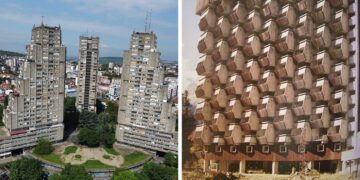
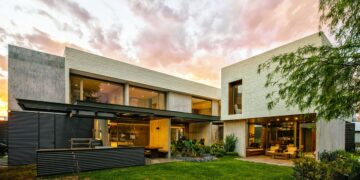




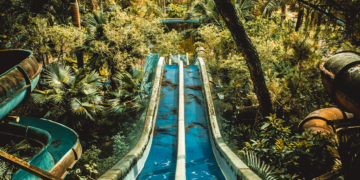
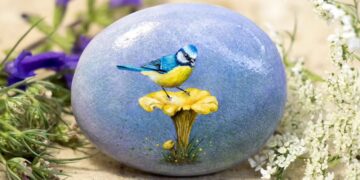



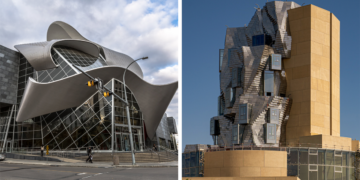
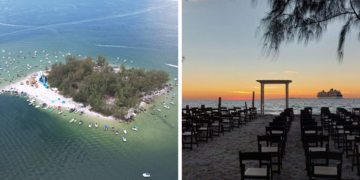
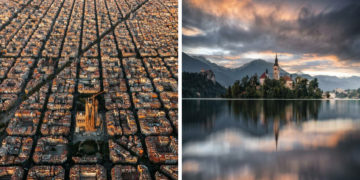
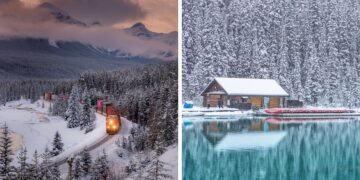
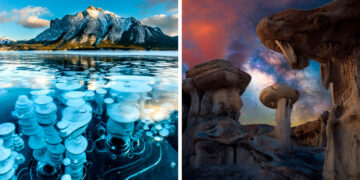

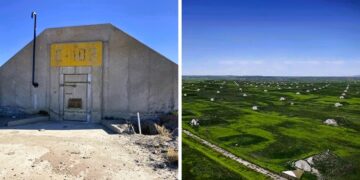

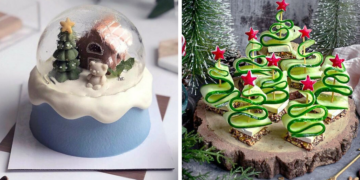
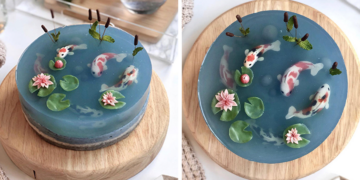
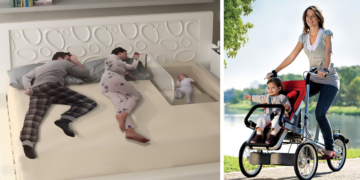
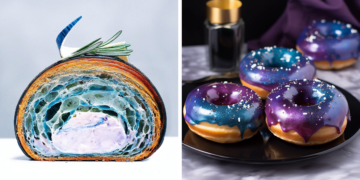


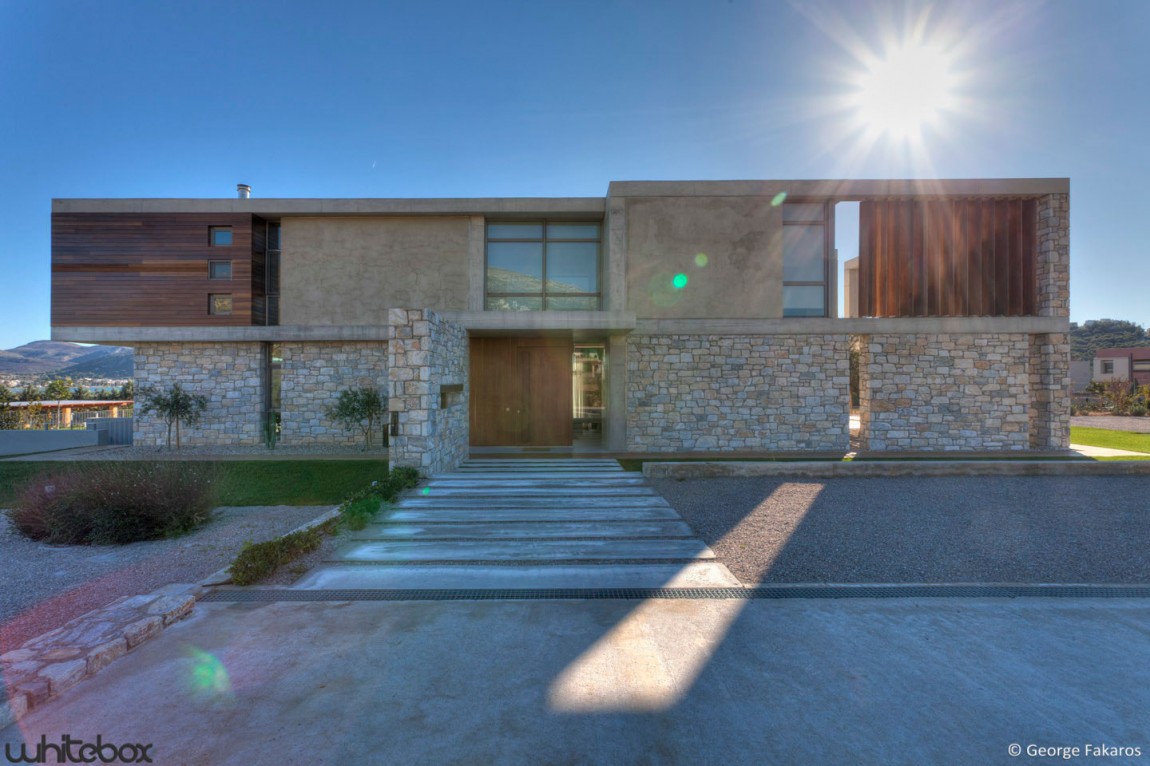
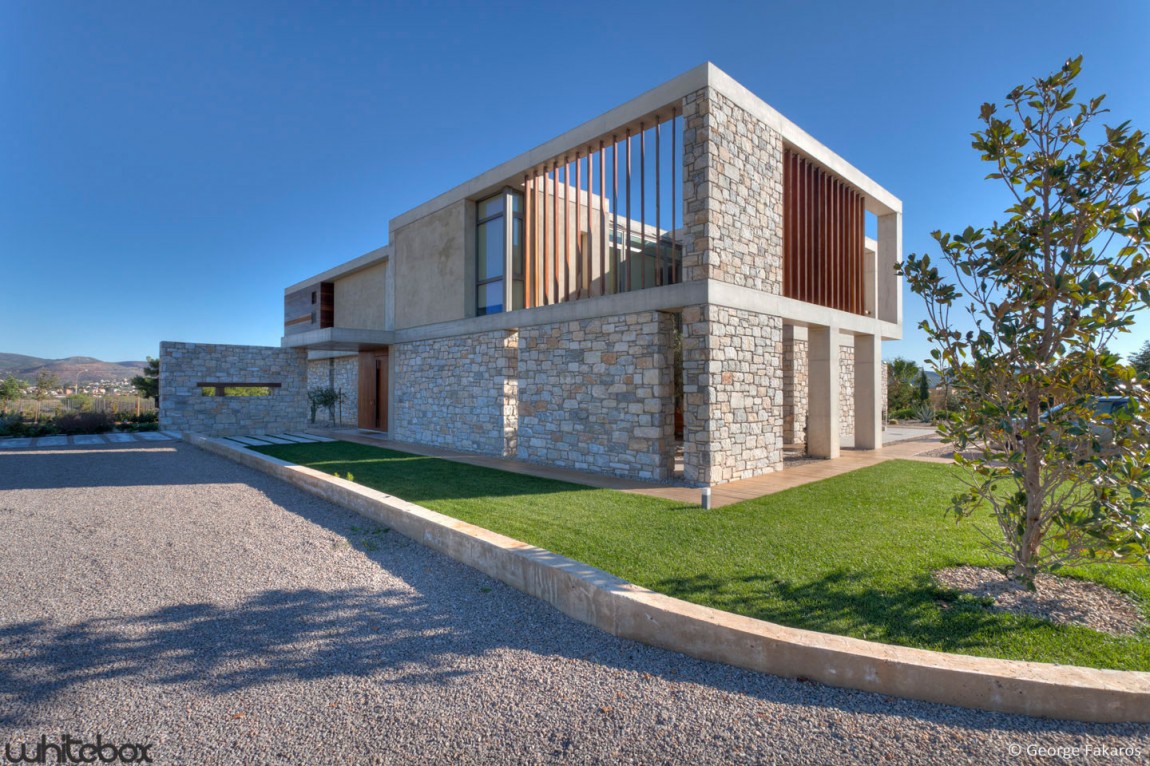
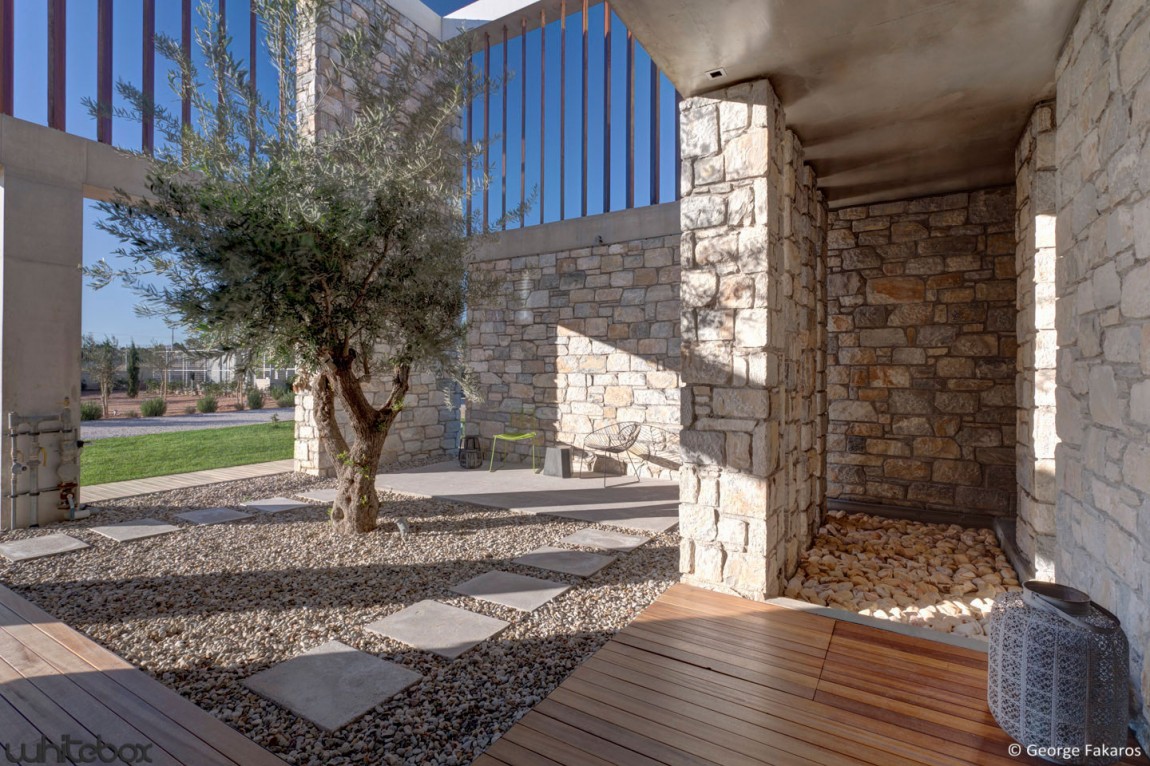
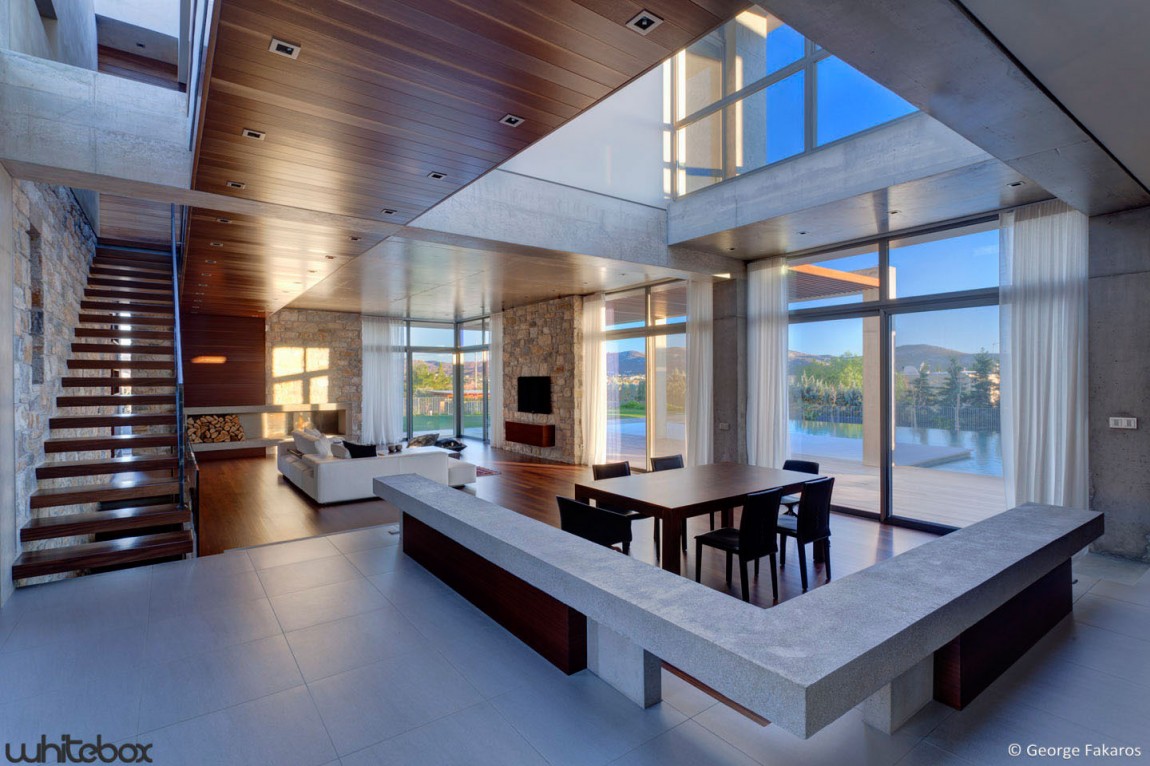
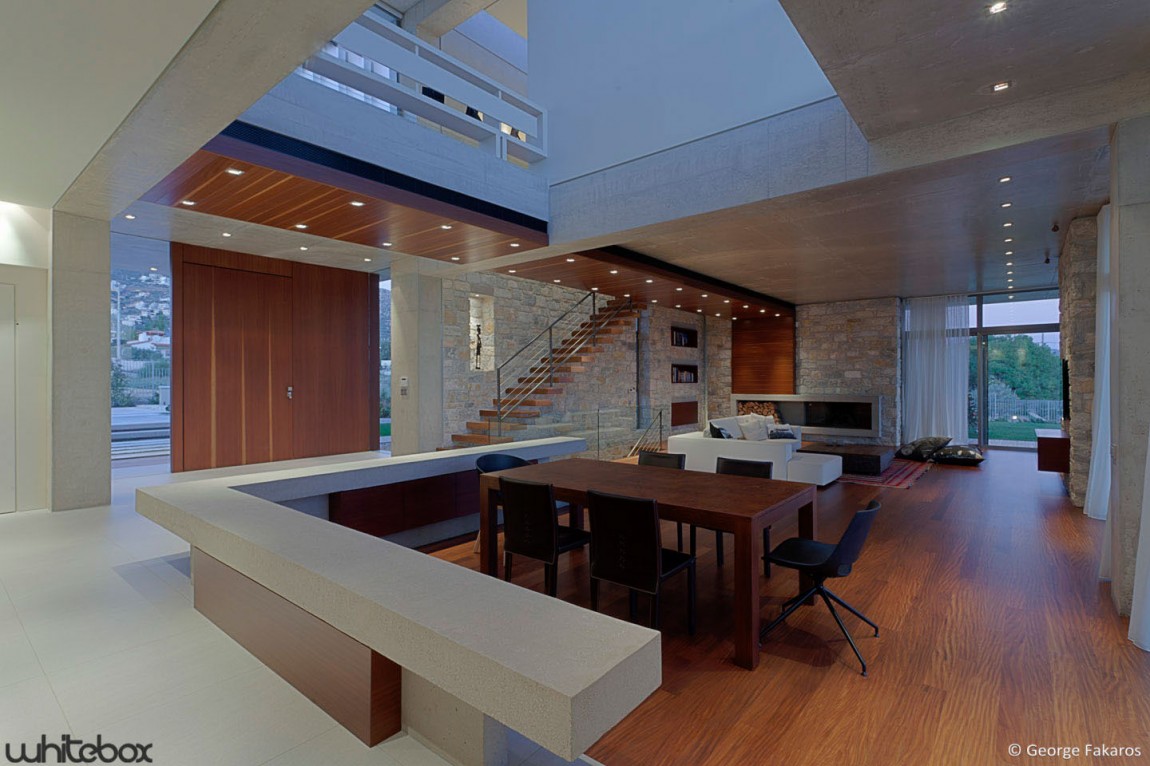
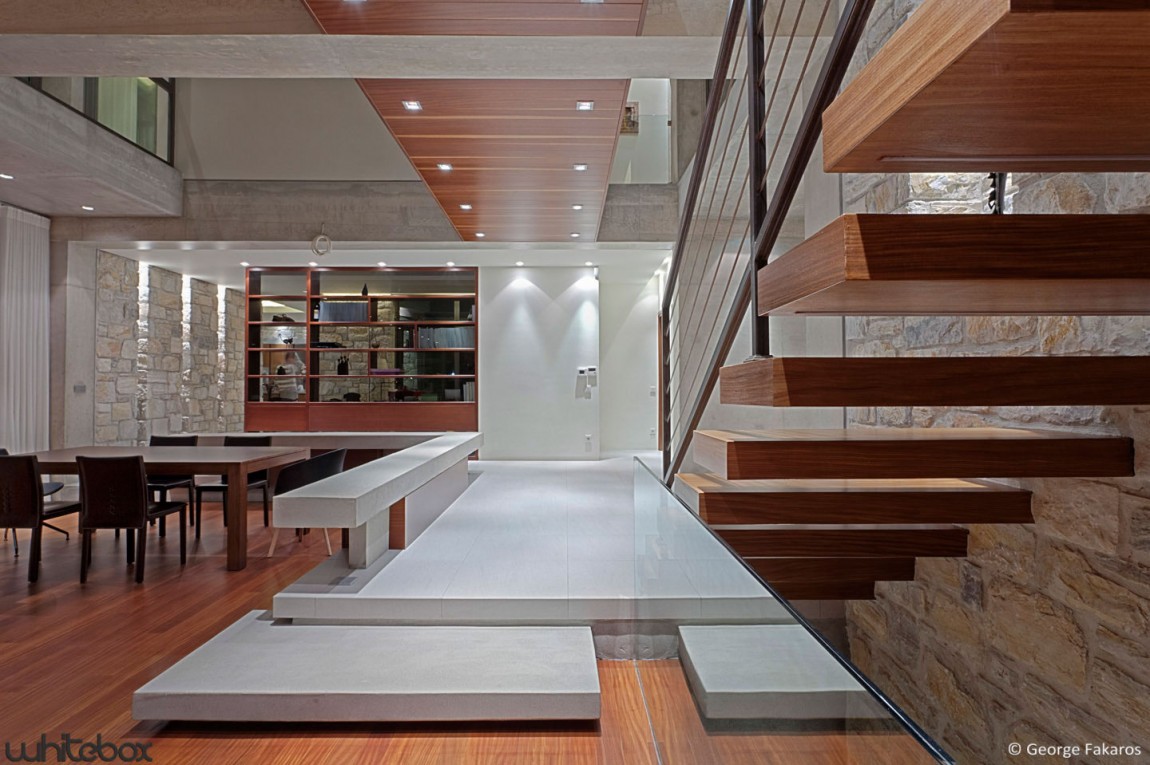
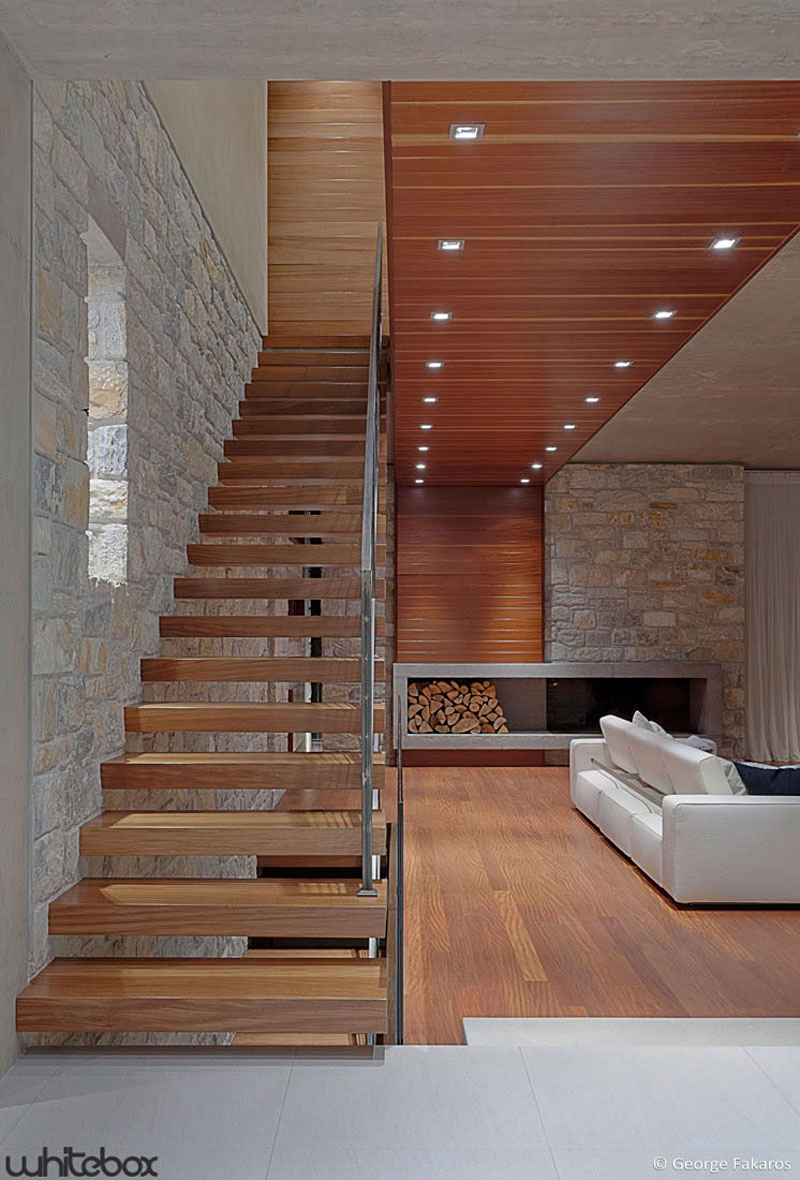
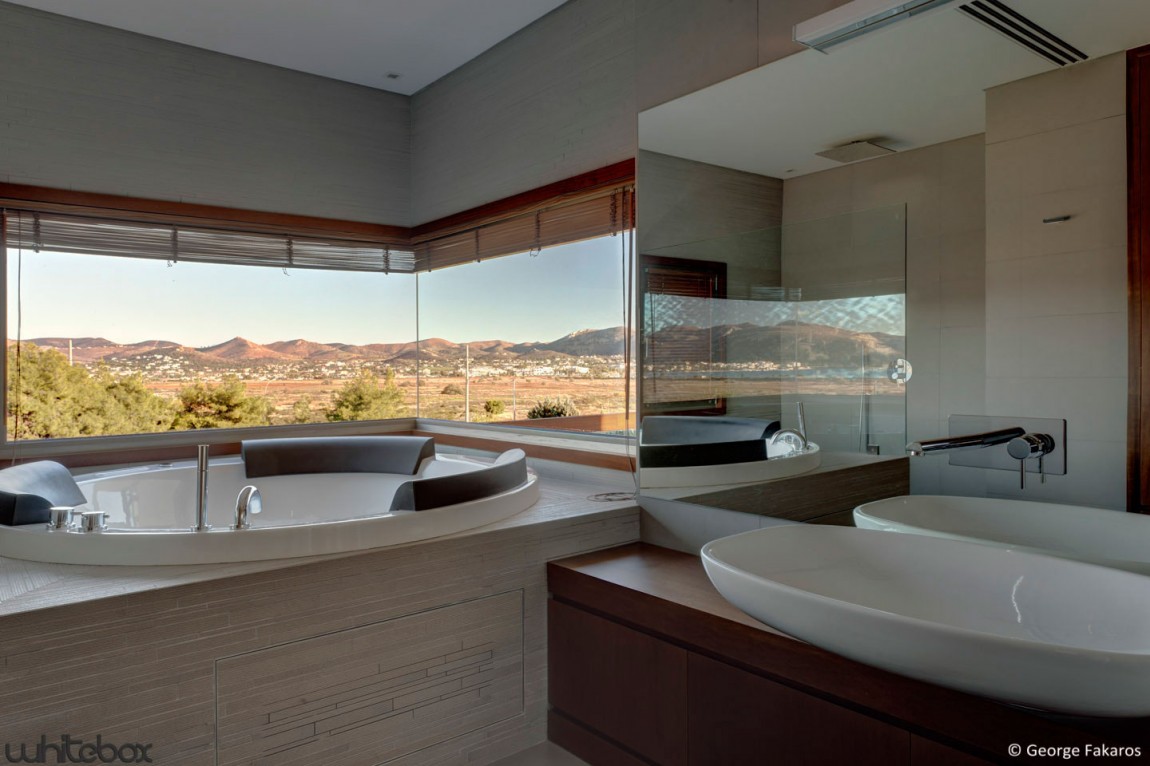
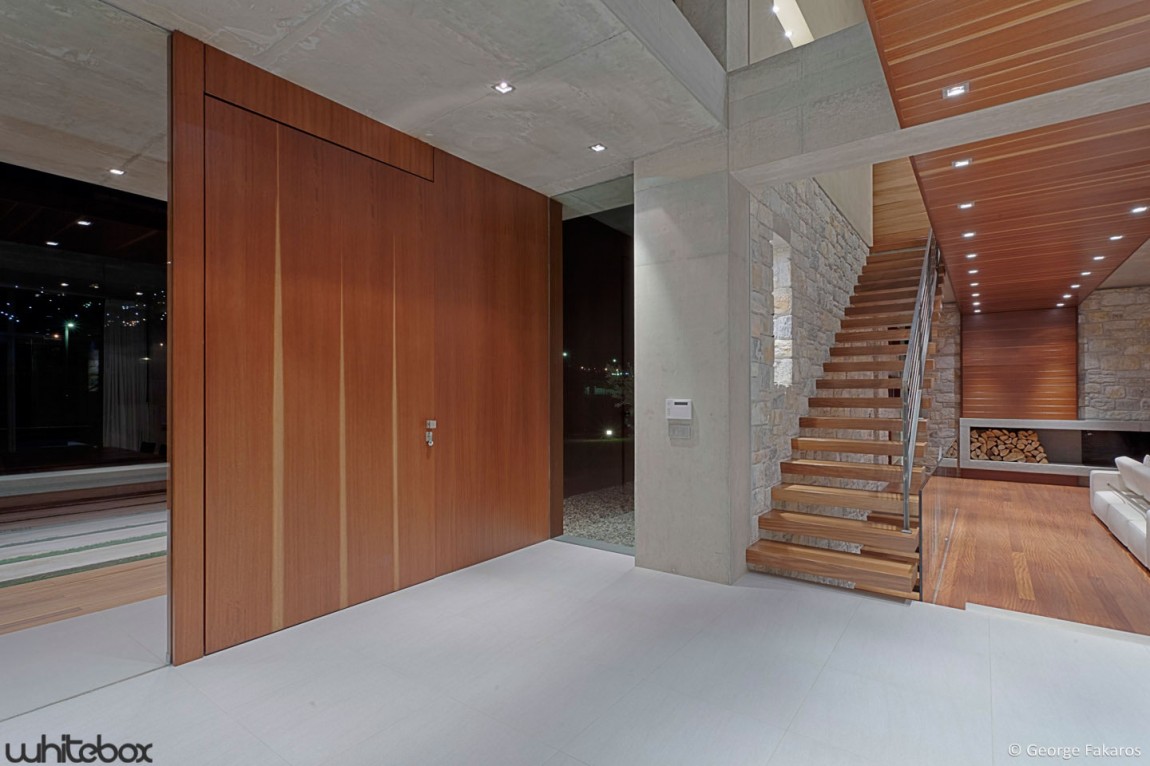
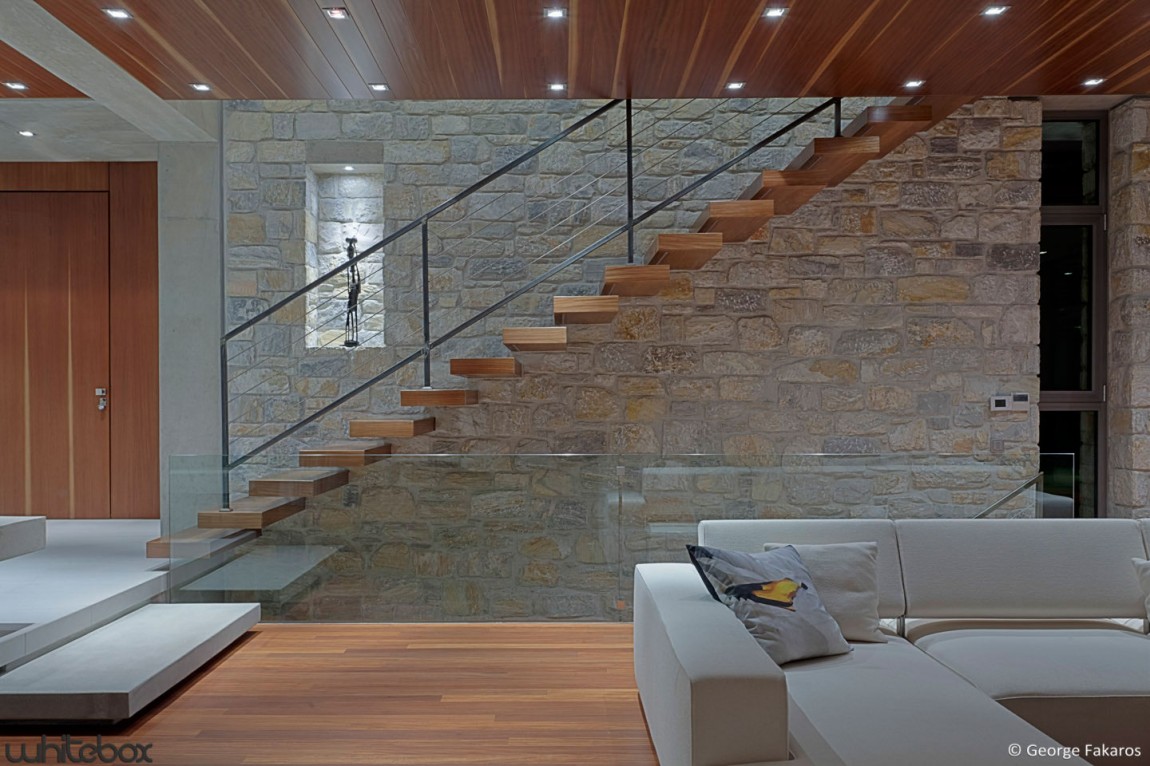
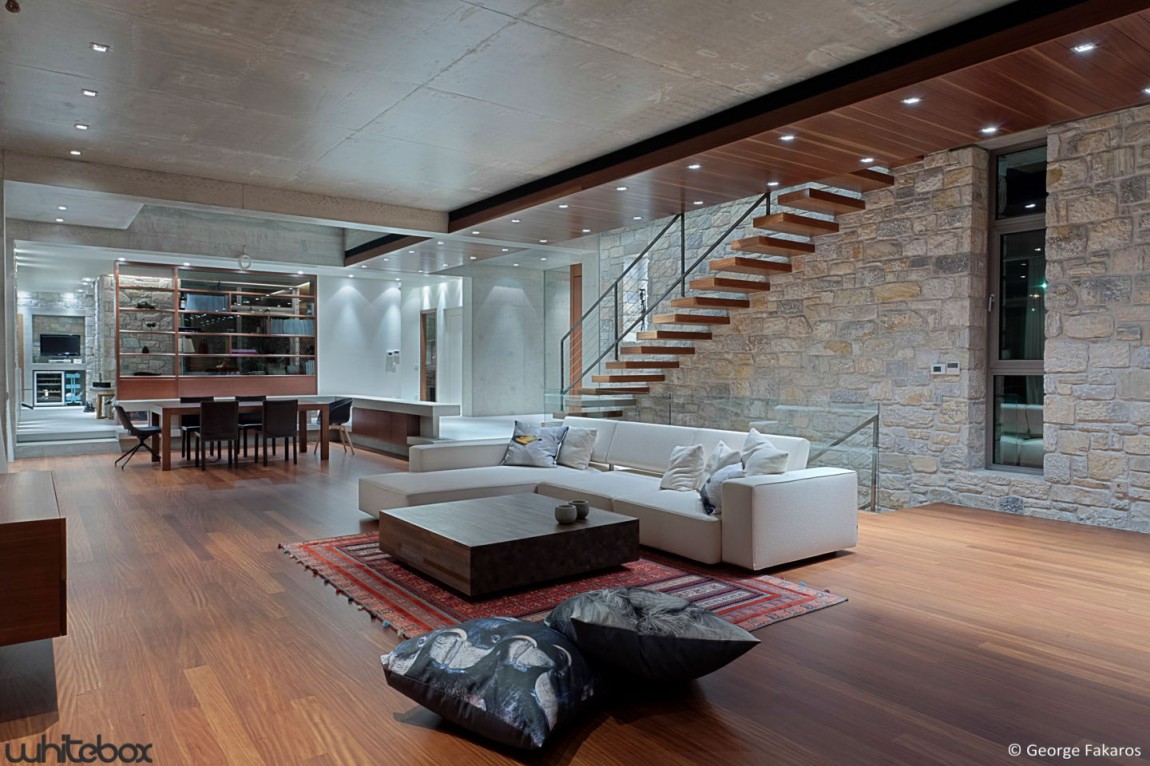
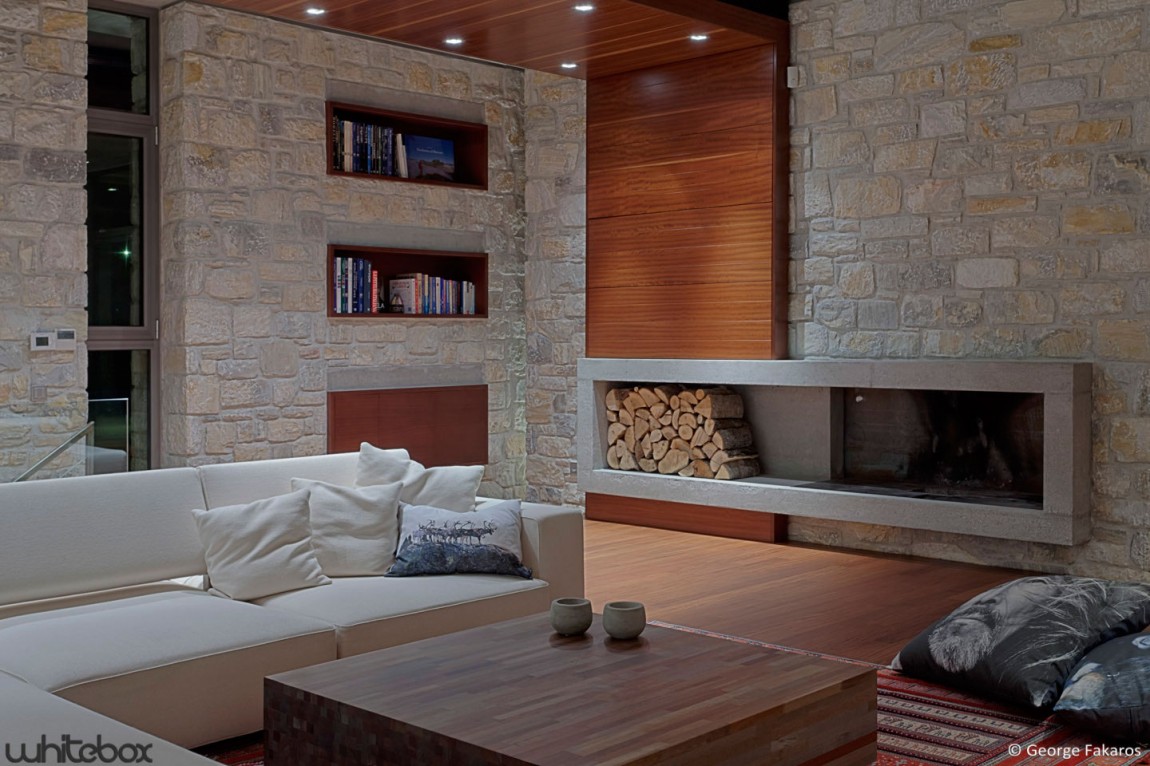
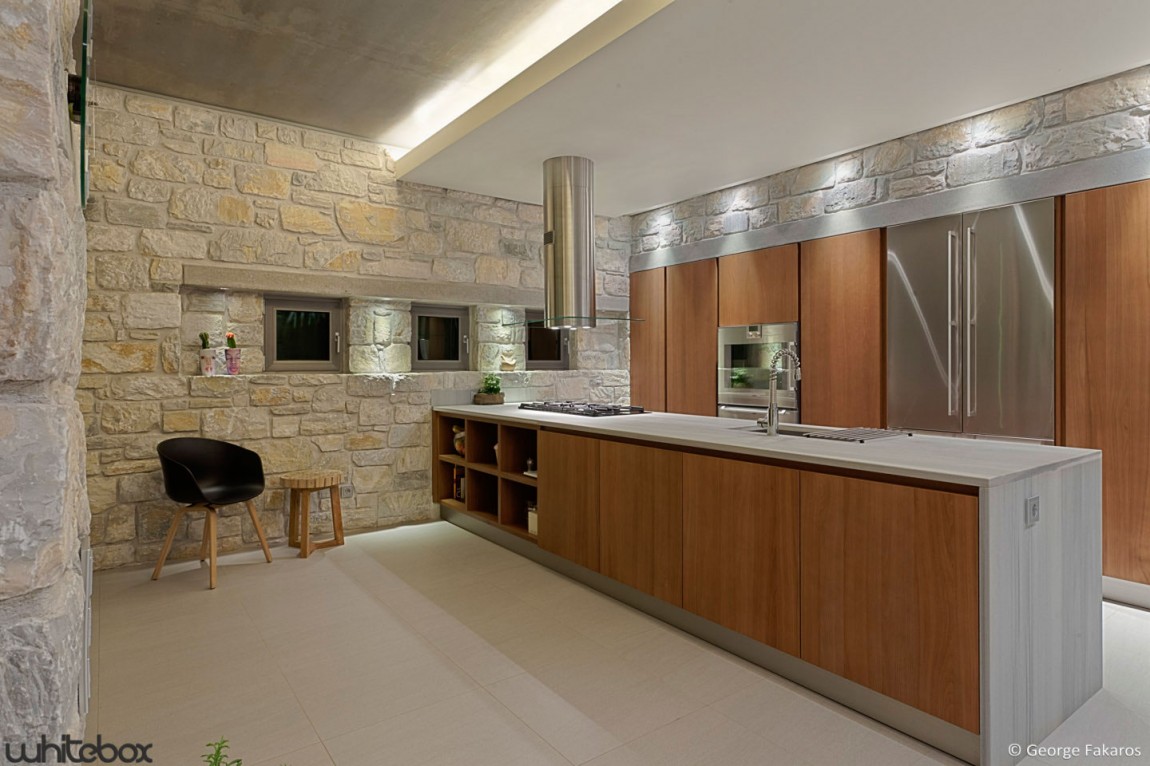
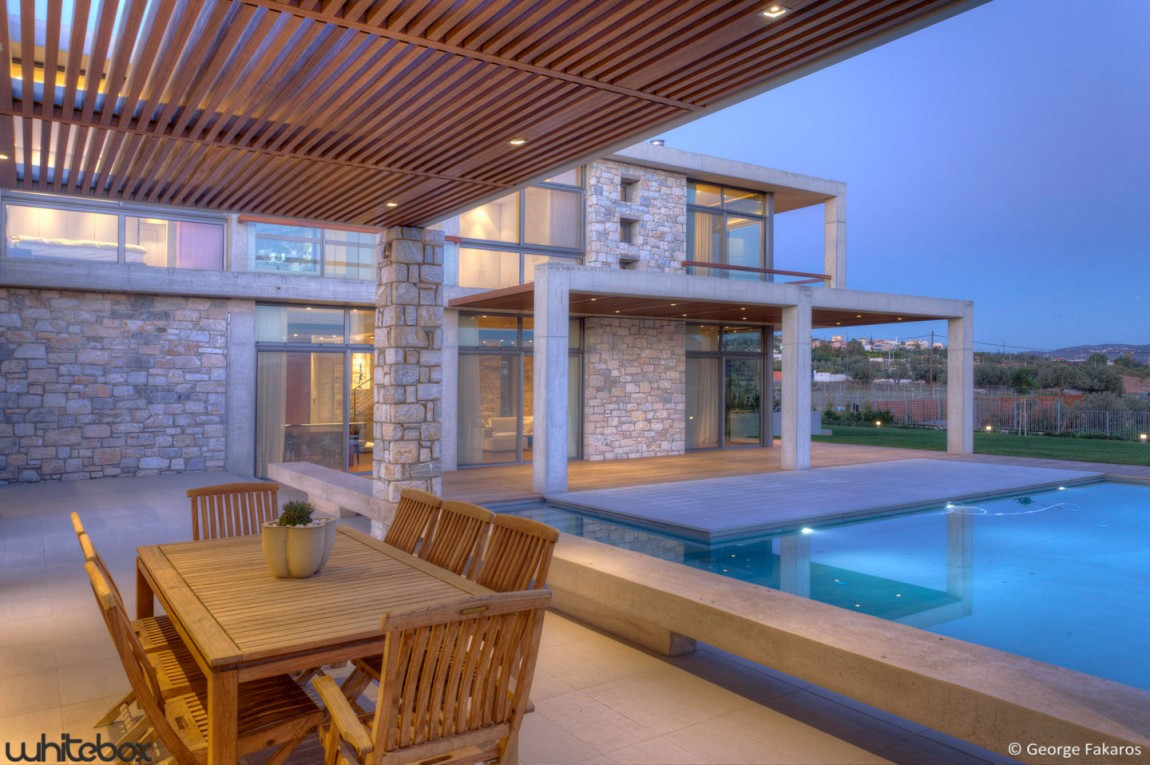
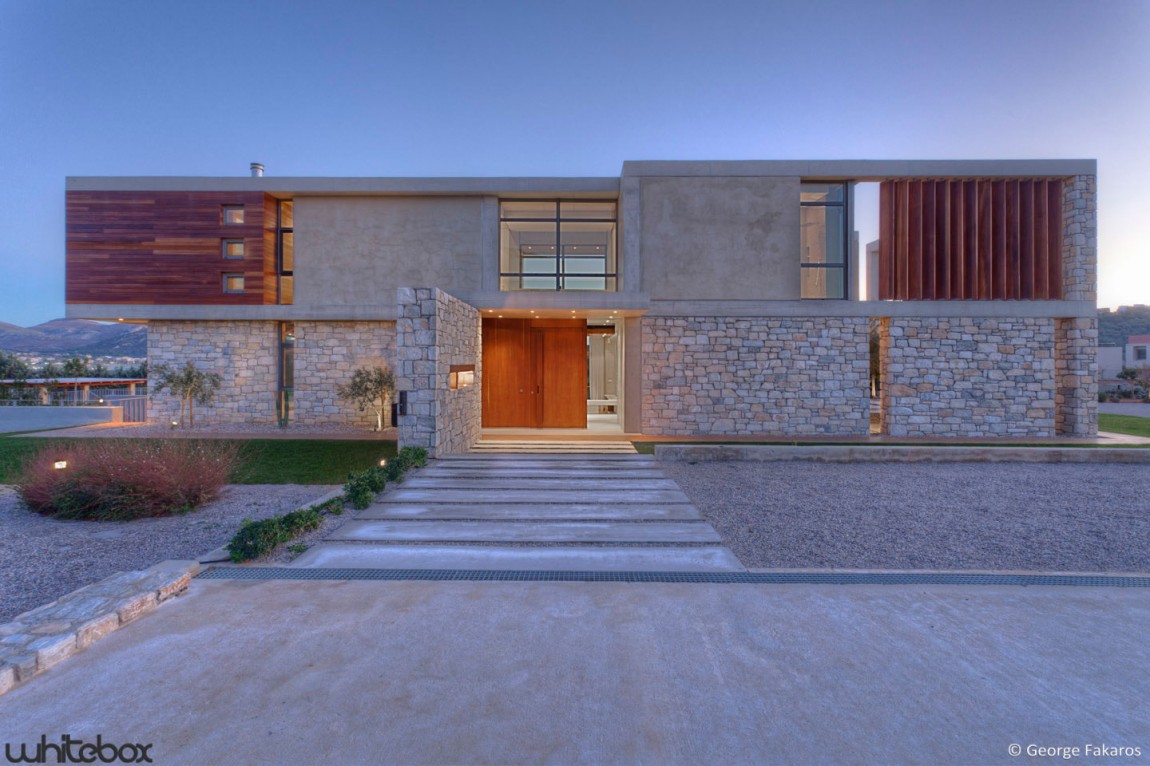
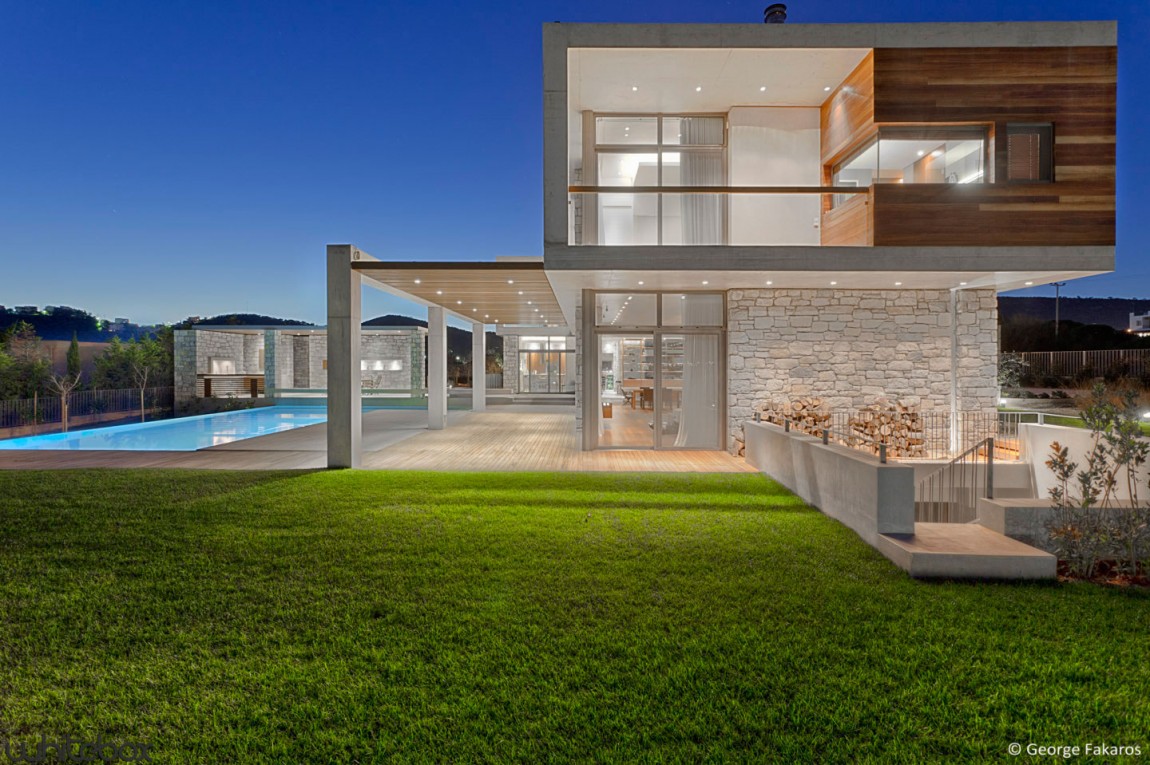
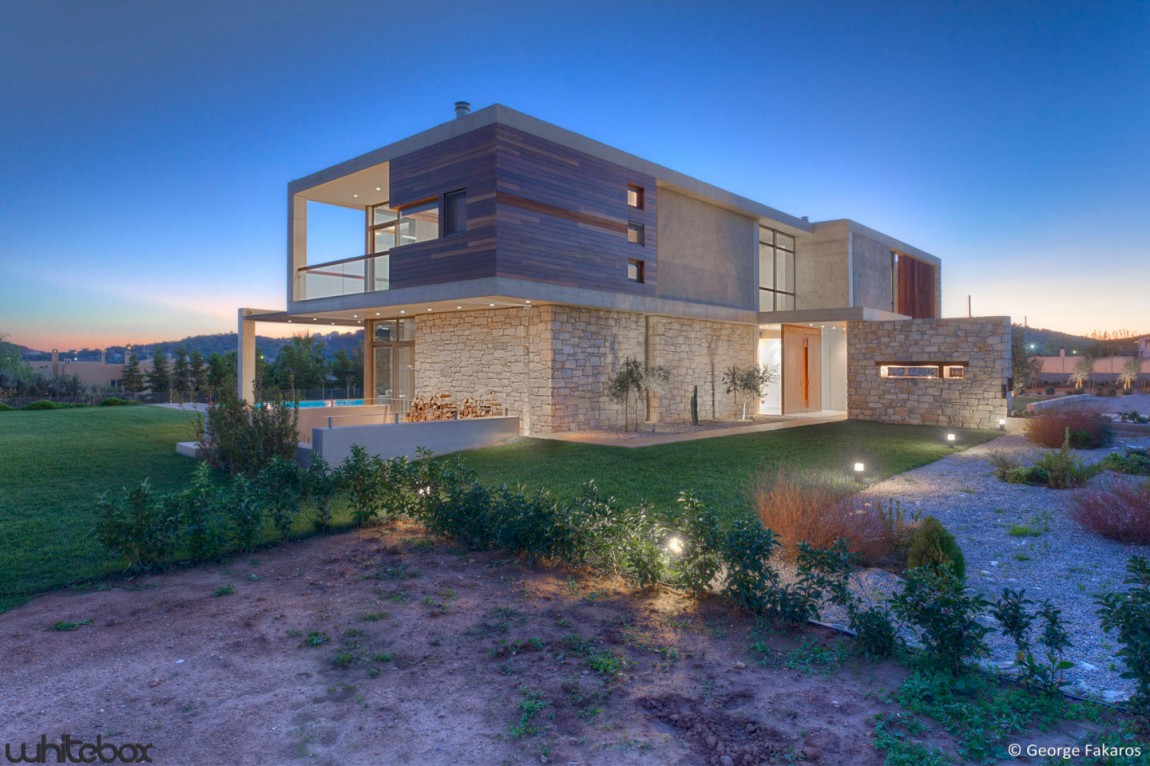

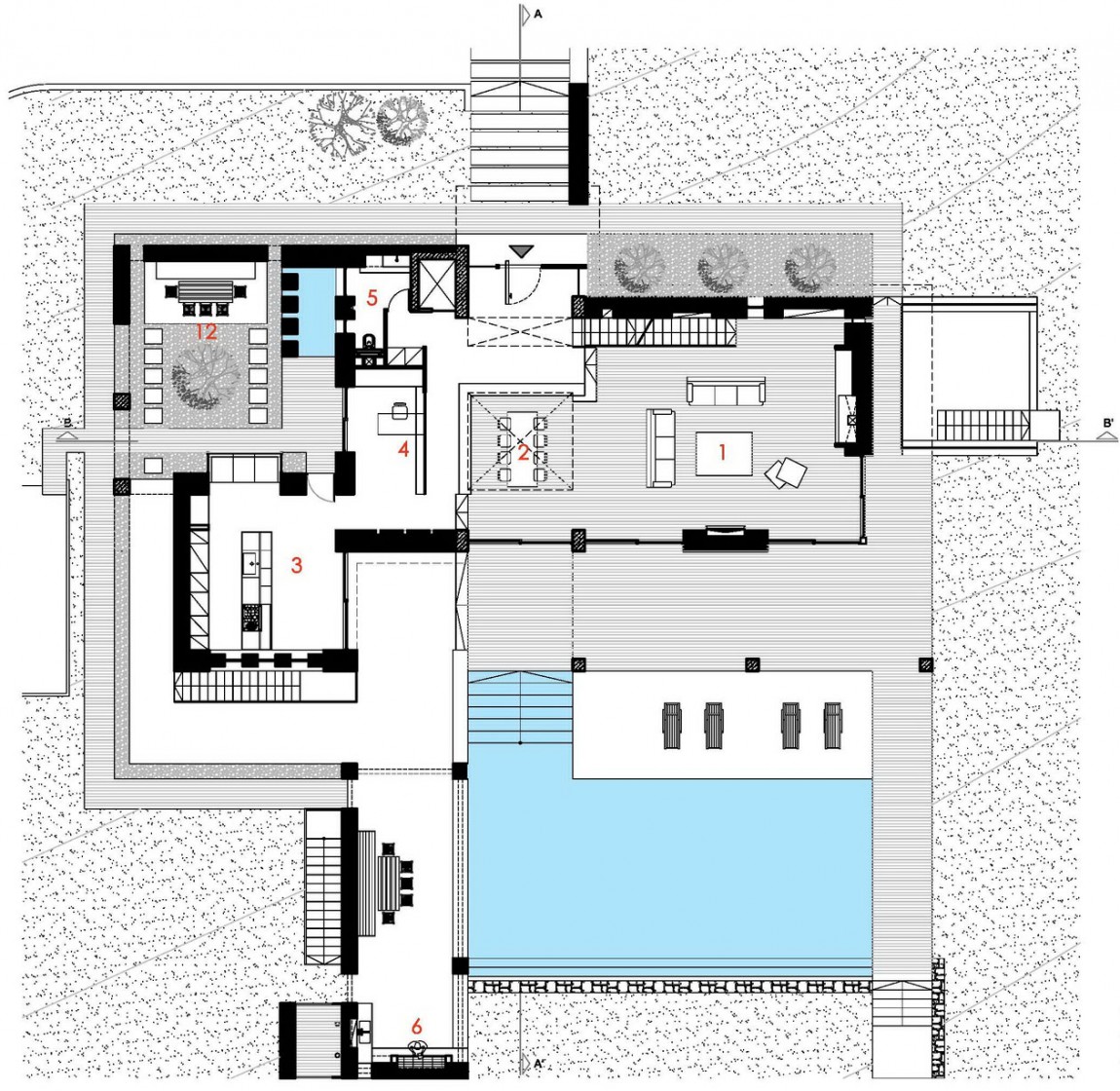
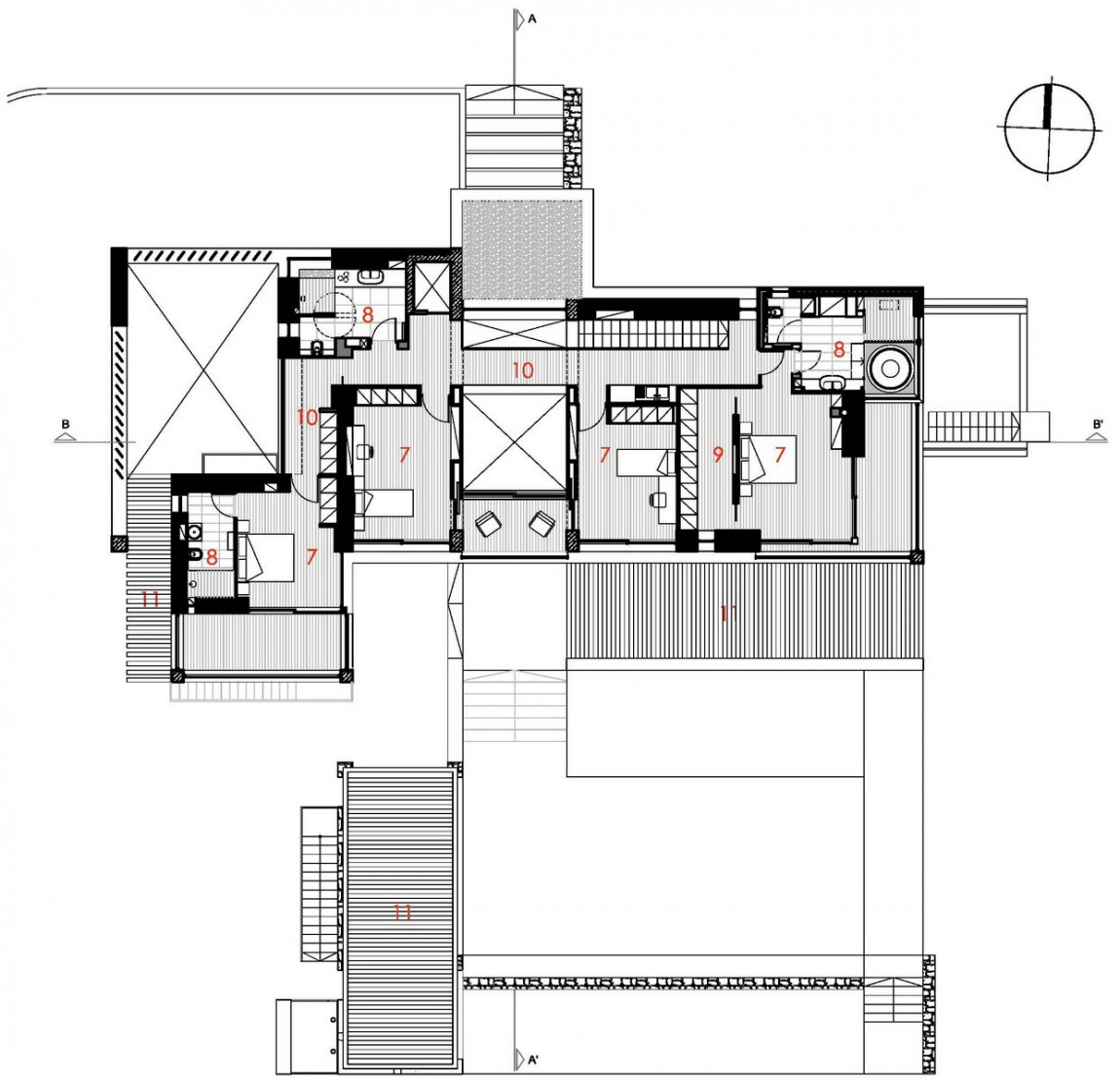









Discussion about this post